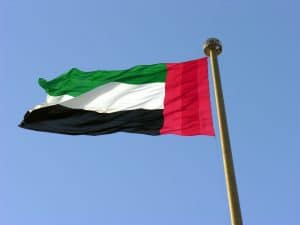In early October, Dubai’s police chief Nasser Ahmed al-Raisi was nominated to become the next president of INTERPOL. As inspector general in the Ministry of the Interior, Raisi is in charge of managing the security and police forces in the UAE. After Raisi’s nomination, various individuals have made allegations against the candidate for grave human rights abuses.
Among the accusers are two British nationals. British academic, Matthew Hedges, was detained in the UAE and suffered psychological torture in solitary confinement for six months in 2018.
Hedges was held on farcical charges of “spying” for the British government. Hedges claimed that he was coerced into making false confessions, having his calls monitored, and taking strong drugs to treat his panic attacks. Hedges was sentenced to life in prison after a hearing that lasted for less than five minutes. He was handed a presidential pardon later on in the year after pressure from the international community.
Ali Ahmad is a British football fan who was imprisoned by UAE law enforcement for wearing a Qatar shirt to a match. According to a report by the Telegraph, while detained, Ahmad was stabbed in his chest and arms, struck in the mouth causing him to suffer oral injuries, suffocated with a plastic bag, electrocuted, denied food and drink, forced to sign a confession and denied access to a lawyer. These instances of torture have, as a result, raised international concern over the future of INTERPOL.
There has been much speculation over UAE’s influence on INTERPOL. In 2017, the UAE announced that it had donated $54 million to support various INTERPOL projects. Many speculate that this along with Al-Raisi securing the presidency of INTERPOL, will be an opportunity for the UAE to acquire greater global influence and maintain a positive image while downplaying its own history of human rights abuses. Moreover, many fear that Al-Raisi’s appointment to the presidency will greatly damage the overall legitimacy of INTERPOL as a global crime control organization.
Other regimes, including China and Russia, have been noted to abuse their role in the organization. These regimes have reportedly used INTERPOL to target exiled political opponents, dissidents and journalists. Many worry that the UAE will mirror these actions if Al-Raisi is elected later this year.
Efforts are underway to combat the issue of INTERPOL abuse, most notably The Transnational Repression Accountability and Prevention (TRAP) Act of 2019. The Act was introduced in September 2019, and addresses the abuse of INTERPOL by authoritarian regimes who have filed criminal claims to persecute their own political targets. If passed, the Act would require the U.S. to ensure that INTERPOL operates according to its constitution.
The elections for INTERPOL executive committee positions and for the INTERPOL presidency are held during the INTERPOL general assembly, which is scheduled to take place on December 7th and 8th, 2020.


